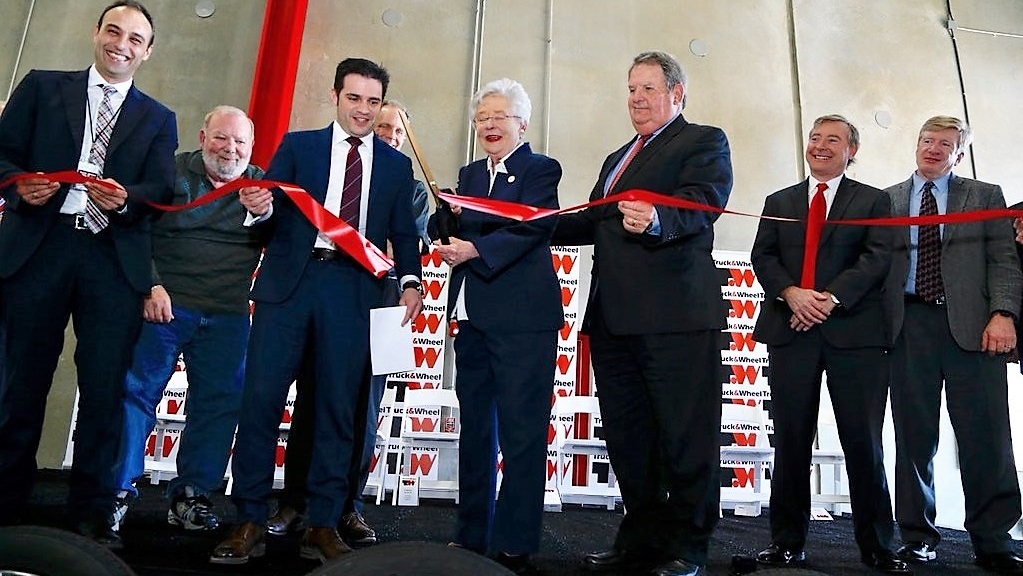Bradley Byrne: Protecting our children

For much of the year, the safety of our students rests in the hands of the faculty, staff, and resource officers at our schools. Without a shadow of a doubt, the people who know best how to protect our schools are the teachers, parents, administrators, police officers, and students in their own communities. In February, the tragic shooting in Parkland, Fla. resonated throughout our communities, highlighting a disturbing trend of individuals who clearly show signs of grave mental instability falling through the cracks. Sadly, this incident likely could have been avoided had there been better oversight at every level of law enforcement. From the top down, we failed these students by not heeding the warning signs and working together as a team to ensure our students’ safety. In response to this incident, the House recently passed the Student, Teacher’s Officer’s Prevention (STOP) School Violence Act, which provides grant funding for evidence-based training for our local law enforcement, school faculty and staff, and students to help identify and prevent school violence before these tragic events occur. First, the STOP School Violence Act provides funding for training to prevent student violence, including training for local law enforcement officers, school personnel, and students in the event of an emergency. This training would be designed to give students and school personnel the ability to recognize and respond quickly to warning signs of violent behavior and would include active shooter training. Second, the bill provides funding for technology and equipment to improve school security. This includes the development and operation of anonymous reporting systems, as well as the installation of metal detectors, locks, and other preventative technologies to keep schools secure. The legislation also authorizes funding for school threat assessment and crisis intervention teams for school personnel to respond to threats before they become real-time incidents. Recognizing the warning signs of violent, threatening behavior and having the proper resources to address it on the front end can prevent these tragedies from ever occurring. Finally, the STOP School Violence Act provides funding to support law enforcement coordination efforts, particularly the officers who already staff schools. From the federal level all the way down to our local law enforcement, we need to ensure there is accountability and communication when handling violent behavior. Many of our local schools are already reevaluating their security measures and taking additional steps to promote a safe learning environment for our students. Our students’ safety and security should always remain a top priority, and I believe it is imperative that our local schools have the most appropriate resources in place in the event of an emergency. As we look for ways to prevent these terrible tragedies, I am open to additional solutions to address the underlying issues that cause these events to occur. That said, I remain steadfastly committed to upholding the individual right of all law-abiding Americans to keep and bear arms. Millions of Americans should not have their Second Amendment rights infringed upon due to the bad actions of a few individuals. Rather, I believe we should focus on addressing mental health issues and combatting the role of violence in our modern culture, such as the prevalence of violent video games that normalize this behavior for our young students, and promoting commonsense solutions that will address the larger issues of mental health so that those with mental illness do not fall through the cracks. There is still work to be done to ensure each child’s safety and well-being while attending classes. However, I am proud that we have taken this action in the House to promote a safe, secure learning environment for our children. • • • Bradley Byrne is a member of U.S. Congress representing Alabama’s 1st Congressional District.
#MeToo women and sexual harassment in politics

We’re at a turning point for women in politics right now, not just in Alabama but across the nation. In the last several years women have marched, have become candidates and have stood up against sexual harassment and discrimination in the face of the high costs. A newly released study revealed glaring insights to the sexism and misogyny that exist within the political arena. Almost half of women in politics across the globe have suffered abuse or violence — 44% of those surveyed said they have faced serious abuse, including threats of murder, rape and assault. I dare guess those numbers hold up for American women in politics too. The study was commissioned to be presented at a conference that began today. The Stop Violence Against Women in Politics conference highlights the fact that “more women than ever before are participating in politics worldwide. Higher numbers of women are being elected to public office and, in many countries, more women are attending political events, engaging with government bodies and registering as voters.” “However, as women’s political activity has grown, so has the frequency and degree of violent responses to their presence in politics. Globally, politically-active women – voters, candidates, local councillors, members of parliament, bloggers and activists – regularly find themselves on the receiving end of acts or threats of violence,” read the conference description. Politics is a full contact sport that used to be dominated by men. The good news is it’s not what it used to be, and when and where it fails you, you’re now empowered to stand up for yourself. What used to be common place on campaigns and in political or policy offices is no longer acceptable. Women no longer have to listen to degrading remarks, sexist jokes, be touched or lured at inappropriately. Women can hold positions of power and they can be strong and confident without being called names for it. All advancements made even in my short career. You don’t have to look beyond the headlines of what has been going on in some state capitols to see how change has started. In Florida, the future Senate President Jack Latvala was forced to resign amid a report concluding that he had probably sexually harassed a woman and potentially used sexual favors as leverage for lobbyists. In Arizona, State Representative Don Shooter was expelled by his chamber after a number of charges against him for sexually harassing and intimidating women including staffers and another state legislator. That case spiraled out of control and was only the first of two times in recent history where a member of a state legislative body was expelled by their chamber for sexual-harassment. In my 12 plus years in this field I’ve seen it all. I’ve worked for every type of boss and candidate. Some of whom I will respect and speak well of ’til the day I die. While Governor Jeb Bush probably couldn’t pick me out of a line-up, he was the first male politician I saw firsthand as I worked as scheduler in his office for just a few months before returning to Washington, D.C. Bush surrounded himself with women in roles of authority who embodied the spirit, strength and brains that young women could look up to. The atmosphere was so encouraging and many women rose among the ranks and went on to careers that have spanned the years since. On the flip side I also recently experienced a work environment so toxic and sexist that ultimately it led to my resignation. The attitude that age precluded even those in positions of power from being held to the most basic standards of human decency permeated a small office and women were treated as second class citizens without respect of their intelligence or respect of their personal space. Needless to say, I dreaded going to work everyday. I dreaded that my boss would hear my complaints validate them with his own experiences having seen the perpetrator harass women, yet do nothing time and time again. I dreaded that I ran through every option afforded to me including going to multiple lawyers involved in the association, and yet the sexual harasser was defended and protected. The board and chairman have continued to do nothing to rectify the situation. As a woman, as a mother I acknowledge that we have turned a major corner, but we have a lot further to go. What will really be the catalyst for change? When will women like me feel as though we can truly speak out? Well the change will have to come from a change in mind and hearts for every one us. Regardless of gender or age, we all have a role in making our country a better place. Teaching our little girls to use their voice and their vote is something that can be done each day. We can teach our boys to respect the girls and women around them and to stand up for them every single chance they get. We can encourage politics as a field of study for college aged women. We can encourage women, of every age, race and background, to run for office. We can expect, no demand, that, unlike in my recent experience, the men working in politics do what’s right. No questions asked. We can challenge those around us not to use this movement as a weapon but as an opportunity. In Florida women lobbyists spoke out about the fear that the women coming forward were going to set them back. That is a very real fear and no doubt that life as women have known it in this field will be different. The movement isn’t just about making women comfortable though it’s also about giving everyone the opportunity to work in an environment that isn’t hostile or anxiety ridden. Men are starting to take additional precautions to protect themselves against false charges and women need to be patient with them as they do so. It’s incumbent on each of us to make sure that
Donald Trump opioid plan includes death penalty for traffickers

President Donald Trump’s plan to combat opioid drug addiction calls for stiffer penalties for drug traffickers, including the death penalty where appropriate under current law, a top administration official said. It’s a fate for drug dealers that Trump has been highlighting publicly in recent weeks. Trump also wants Congress to pass legislation reducing the amount of drugs needed to trigger mandatory minimum sentences for traffickers who knowingly distribute certain illicit opioids, said Andrew Bremberg, Trump’s domestic policy director, who briefed reporters Sunday on the plan Trump is scheduled to unveil Monday in New Hampshire, a state hard-hit by the crisis and that he once referred to as “drug infested.” The president will be joined by first lady Melania Trump, who has shown an interest in the issue as it pertains to children. Trump drew criticism last year after leaked transcripts of his telephone conversation with Mexico’s president showed he had described New Hampshire as a “drug-infested den.” The Washington Post published the transcripts. Death for drug traffickers and mandatory minimum penalties for distributing certain opioids are just two elements under the part of Trump’s plan that deals with law enforcement and interdiction to break the international and domestic flow of drugs into and across the U.S. Other parts of the plan include broadening education and awareness, and expanding access to proven treatment and recovery efforts. Trump has mused openly in recent weeks about subjecting drug dealers to the “ultimate penalty.” The president told the audience at a Pennsylvania campaign rally this month that countries like Singapore have fewer issues with drug addiction because they harshly punish their dealers. He argued that a person in the U.S. can get the death penalty or life in prison for shooting one person, but that a drug dealer who potentially kills thousands can spend little or no time in jail. “The only way to solve the drug problem is through toughness,” Trump said in Moon Township. He made similar comments at a recent White House summit on opioids. “Some countries have a very, very tough penalty — the ultimate penalty. And, by the way, they have much less of a drug problem than we do,” Trump said. “So we’re going to have to be very strong on penalties.” White House officials referred questions about the death penalty and drug traffickers to the Justice Department, which said the federal death penalty is available for several limited drug-related offenses, including violations of the “drug kingpin” provisions in federal law. Doug Berman, a law professor at Ohio State University, said it was not clear that death sentences for drug dealers, even for those whose product causes multiple deaths, would be constitutional. Berman said the issue would be litigated extensively and would have to be definitively decided by the U.S. Supreme Court. Opioids, including prescription opioids, heroin and synthetic drugs such as fentanyl, killed more than 42,000 people in the U.S. in 2016, more than any year on record, according to the Centers for Disease Control and Prevention. Trump has declared that fighting the epidemic is a priority for the administration but critics say the effort has fallen short. Last October, Trump declared the crisis a national public health emergency, short of the national state of emergency sought by a presidential commission he put together to study the issue. “We call it the crisis next door because everyone knows someone,” said Kellyanne Conway, a Trump senior adviser. “This is no longer somebody else’s community, somebody else’s kid, somebody else’s co-worker.” Trump will also discuss how his plans for a U.S.-Mexico border wall and punishing “sanctuary” cities that refuse to cooperate with federal immigration authorities will help combat the opioid crisis, Conway told reporters traveling with the president. Other elements of the plan Trump call for a nationwide public awareness campaign, which Trump announced last October, and increased research and development through public-private partnerships between the federal National Institutes of Health and pharmaceutical companies. Bremberg said the administration also has a plan to cut the number of filled opioid prescriptions by one-third within three years. The stop in New Hampshire will be Trump’s first as president. He won the state’s 2016 Republican presidential primary but narrowly lost in the general election to Hillary Clinton. It follows a visit to the state last week by retiring Sen. Jeff Flake, R-Ariz., a persistent Trump critic. Flake told New Hampshire Republicans that someone needs to stop Trump — and it could be him if no one else steps up. Republished with permission from the Associated Press.
City of Mobile has new tool to tackle blight thanks to newly signed law

The City of Mobile has a new tool in the fight against blight after a bill sponsored by Mobile-Democrat State Rep. Adline Clarke was signed into law by Governor Kay Ivey. The new law allows Class 2 municipalities — the City of Mobile is the state’s only Class 2 municipality — to address and remove inoperable vehicles as public nuisances that are on private property that contribute to blighted neighborhoods. “I’m proud to have sponsored and fought for this legislation which provides the city an important new tool in our continuing fight against blight,” said Clarke. “Working together, we can keep the progress going.” For purposes of this act, the term “inoperable motor vehicle” refers to any motor vehicle, trailer, or semi-trailer that has remained on private property and in view of the general public for 30 days or any greater period fixed by the municipality and is inoperable in that one or more of its major mechanical components, including, but not limited to, engine, transmission, drive train, or wheels, are missing or are not functional, or the vehicle otherwise constitutes a nuisance. HB127 is the latest of Clarke’s efforts to improve life in Mobile. During last year’s session, she was part of the coalition who successfully fought for restoring the Historic Tax Credit program, which has had a tremendously positive impact for the City on both commercial and residential projects. “I greatly appreciate Rep. Clarke’s leadership on this important legislation which will be of great assistance in our ongoing work to better our neighborhoods,” said Council Vice President Levon Manzie. HB127 was signed into law by Ivey late last week.
Author, activist Elizabeth Smart to deliver message of hope in Homewood

The New York Times bestselling author and survivor of one of the most followed child abduction cases of our time Elizabeth Smart is coming to Homewood, Ala. next month to speak as part of her book tour featuring her newest book, “Where There’s Hope.” At the event she will sign copies of her most recent book, share her inspiring message of hope and life after sexual trauma, and hold a Q&A session. After surviving the unimaginable terror of being kidnapped and held captive for nine months, the road to recovery is one that Smart has walked since her abduction in 2002. Now, 16 years later, Smart, now a mother, world-traveler, successful author and president of the Elizabeth Smart Foundation, is continuously asked how she finds the hope to go on. In her new book, she revisits the horror she endured and the hard-won lessons she learned to provide answers. The heartfelt how-to guide for making peace with the past and embracing the future offers an intimate glimpse into Smart’s healing process and support system, while excerpting conversations with well-known figures such as Anne Romney, Diane von Furstenburg, Mandy Patinkin, Archbishop John C. Wester and Elder Richard Hinckley. “I was not willing to accept that my fate was to live unhappily ever after,” Smart reflects in her new book. “Everything – my family, my home, my chance to go to school – had been given back to me, and I didn’t want to miss a second chance of living my own life.” The event will take place Tuesday, April 3 at 7 p.m. at Books-A-Million in Brookwood Village’s Center Court located at 780 Brookwood Village. To attend, guests must purchase an Eventbrite ticket in advance by visiting elizabethsmart.eventbrite.com. Each ticket will include a copy of Smart’s new book “Where There’s Hope,” as well as admittance to the talk and presentation. Smart’s visit to the Yellowhammer State is timely as the state continues to battle human trafficking. Alabaster-Republican State Sen. Cam Ward introduced SB179, earlier this year to enhance the criminal penalties for obstructing the enforcement of the human trafficking laws in Alabama. At least 36 human trafficking cases were reported in the Yellowhammer State in 2017. The National Human Trafficking Hotline also reports more than 184 victims of human trafficking in Alabama have called its hotline for help this year (that’s up a whopping 73 calls from the time we first wrote about the bill mid-January.) In fact, the stretch of I-20 between Atlanta and Birmingham is known as the Sex Trafficking Superhighway. With little time remaining in the 2018 legislative session, news of Smart’s visit may be the motivation state lawmakers need to tackle the bill.
Truck & Wheel Group opens $30 million Alabama wheel assembly plant

Spain-based auto supplier Truck & Wheel Group opened a new 127,000-square-foot manufacturing facility that will supply wheel assemblies for automakers in the Southeast. The company’s executive management team joined Gov. Kay Ivey, Mercedes-Benz’s Alabama operations chief Jason Hoff and community leaders at a grand opening ceremony for the Alabama facility. The $30 million project will create more than 70 jobs. “Truck & Wheel USA would like to once again say thank you to the town of Vance and Tuscaloosa County Industrial Development Authority for helping make this project possible,” said Antonio Montoro, the plant’s manager. “Thank you for welcoming us into your community.” The company’s highly automated facility in Vance will assemble, sequence and balance wheels for delivery to automotive production lines. This is the first U.S. operation for the company, which wants to expand its market as a Tier 1 supplier. “Alabama’s auto industry continues to be a powerful driver of economic growth across the state, creating jobs for hard-working citizens and opportunities for communities,” Ivey said. “I’m excited to see Truck & Wheel Group locate its first U.S. facility in Tuscaloosa County, and I know they will be a great addition to our expanding automotive manufacturing sector,” she said. ‘Foundation for success’ Dean McClure, chairman of the Tuscaloosa County Industrial Development Authority (TCIDA), said Truck & Wheel Group is joining a thriving international business community in the county. “The new opportunities and new jobs that this multinational company brings to our county and our region will positively impact the area’s workforce and business climate for many years,” McClure said. “Truck and Wheel’s commitment to innovation and quality combined with the work ethic of our people creates a strong foundation for success.” Truck & Wheel began in Europe in 1998 and now operates two dozen branches with nearly 1,000 workers there. The company is one of the major logistics operators in Spain and Portugal, and it operates centers in France and Germany. It expanded its presence in Mexico with the opening of a new plant in 2015. “Their growth and success in Europe all but guarantees their chances to hit the ground running with their state-of-the-art wheel assembly factory in Vance,” said Jo Bonner, interim executive director of TCIDA and vice chancellor for economic development at the University of Alabama. The Truck & Wheel facility was developed by real estate firm Graham & Co., with Cooper Construction serving as the general contractor. The factory will be highly robotic and automated, attaching tires to rims, inflating them and running quality assurance tests in a matter of seconds. The two firms previously teamed up to build a 500,000-square-foot parts warehouse for the automotive sector. This story originally appeared on the Alabama Department of Commerce’s Made in Alabama website. Republished with permission from the Alabama NewsCenter.


